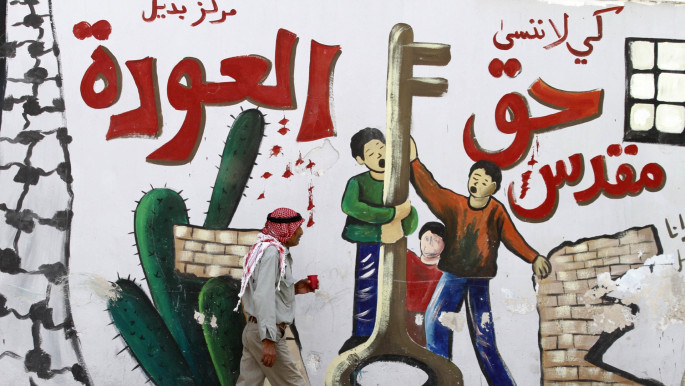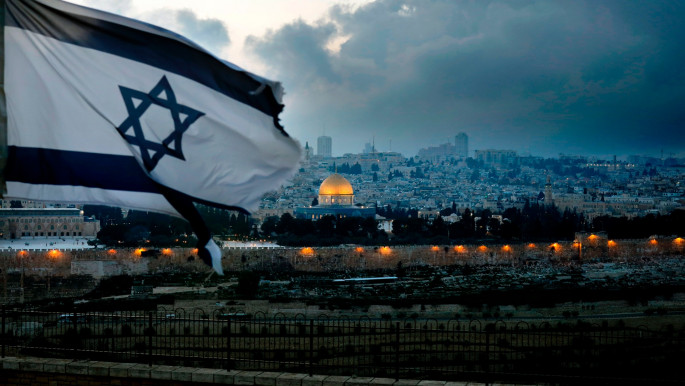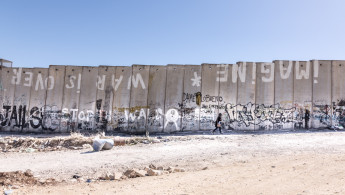The right to boycott: BDS, Israel and the ECHR
The 11 activists from the BDS group 'Collectif Palestine 68' were convicted of "incitement to economic discrimination" after they staged a protest outside a French supermarket that was selling Israeli products.
In a statement, the ECHR said, "A boycott is primarily a means of expressing a protest. Therefore, a call for a boycott, which is aimed at communicating protest opinions while calling for specific protest actions, is in principle covered by the protection set out in Article 10 of the Convention." For the activists themselves this was no doubt a huge relief after such a lengthy and uncertain process.
It is also a huge win for the BDS movement amidst the relentless efforts to criminalise it and bully its activists. These efforts not only come from allies of the Israeli regime, but also from the Israeli Ministry of Strategic Affairs, which has devoted millions of dollars towards countering the efforts of BDS and demonising the movement and its supporters.
"This momentous court ruling is a decisive victory for freedom of expression, for human rights defenders, and for the BDS movement for Palestinian freedom, justice and equality," the movement said.
 |
For over 72 years, Israel has denied Palestinians their fundamental rights and has continuously violated international law |  |
"It confirms a 2016 European Union position defending the right to call for BDS against Israel to achieve Palestinian rights under international law. This is a major legal blow to Israel's apartheid regime and its anti-BDS lawfare."
BDS was established in 2005 when hundreds of Palestinian civil society organizations came together and put out a call for boycotts, divestment and sanctions against the State of Israel. The call noted that all attempts at international intervention and negotiations had failed to force Israel to comply with international law and to recognise the Palestinian right to self-determination.
 |
|
| Read more: Remembering 72 years of the Nakba in the shadow of annexation |
The call took inspiration from the boycott movement against South African apartheid and recognised the historical precedence of international solidarity against such regimes.
It became known as the Boycott, Divestment and Sanctions movement (BDS) and centred around three demands. Firstly, ending the occupation and colonisation of the lands occupied in 1967 (including the Golan Heights); secondly, the recognition of the fundamental rights of the Palestinian citizens of Israel to full equality; and thirdly the right of return of Palestinian refugees as stipulated by UN Resolution 194.
In these three demands, the BDS Movement managed to unite the majority of Palestinians without following a particular party platform. Indeed, its foundation in civil society has helped the movement remain both grassroots and non-partisan.
Whilst the BDS Movement also emphasises the need for sanctions and divestment, the boycott aspect (economic, cultural and academic) has received a lot of focus because this is the tactic which has been successfully implemented the most.
Boycott is an age-old tactic of civil disobedience and is deeply embedded in the long history of Palestinian popular resistance, including during the First Intifada when Palestinians sought to economically resist the Israeli regime.
 |
This momentous court ruling is a decisive victory for freedom of expression, for human rights defenders, and for the BDS movement for Palestinian freedom, justice and equality |  |
Boycotts have also long been used by other social movements as a tactic to protest injustice. For example, the Montgomery bus boycott in the United States in 1955-56, when primarily Black Americans boycotted public buses to protest racial segregation, as well as the UK boycotts of Barclays Bank in the 1980s to protest its involvement in South Africa's apartheid regime.
Today, the BDS movement is undoubtedly a legitimate and vital tool in the struggle for Palestinian rights - importantly it's an effective method of international solidarity. In Spain alone, over 50 councils passed motions in support of BDS or BDS initiatives.
 |
|
| Read more: The day after annexation: Israel, Palestine and the one-state reality |
Among its most impressive wins includes a successful campaign which pressured the French telecoms company 'Orange' to leave the Israeli market for its franchise's complicity in the Israeli military and illegal settlements, as well as the complete withdrawal of the French multinational 'Veolia' from Israel.
The academic boycott has also enjoyed wide success, with many student unions around the world passing BDS motions as well as many prominent academics refusing to attend conferences in Israel, including renowned scientist Stephen Hawking.
The ECHR ruling is yet another victory - it sends an important message to governments and local authorities around Europe that criminalising the tactics of boycott as a form of protest is incompatible with international law.
For over 72 years, Israel has denied Palestinians their fundamental rights and has continuously violated international law. This has continued with the complicity of governments and third parties around the world who fail to hold Israel accountable and even contribute to the oppression of the Palestinians through investments and trade.
This is why the BDS movement's call to global citizens for solidarity with the Palestinian struggle and action is so important. Indeed today, with a world full of racist and fascist regimes this call of internationalist solidarity has never been more important.
Follow her on Twitter: @yarahawari



